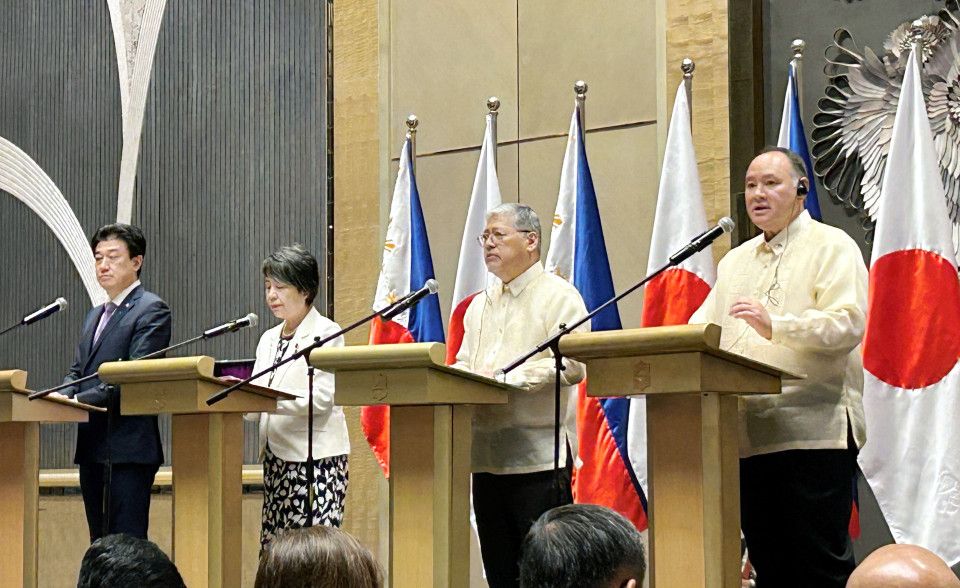
Japan and the Philippines have signed a bilateral defence agreement that will facilitate joint exercises to enhance security cooperation amid China’s growing assertiveness in regional waters.
According to Kyodo News, Japanese Foreign Minister Yoko Kamikawa and Philippine Defense Secretary Gilberto Teodoro signed the Reciprocal Access Agreement in Manila. Philippine President Ferdinand Marcos Jr. attended the signing after meeting with Kamikawa and Japanese Defense Minister Minoru Kihara.
The two nations later expressed “serious concerns over China’s dangerous and escalating actions” in the South China Sea in a joint press statement following their “two plus two” security talks, which involved their foreign and defense ministers.
At the meeting, Philippine Foreign Minister Enrique Manalo, Teodoro, Kamikawa and Kihara also affirmed that their close four-way collaboration with the United States and Australia is key to “advancing the shared vision of a free and open Indo-Pacific.”
Japan’s first AAR with an Association of Southeast Asian Nations member will ease restrictions on personnel transfers between the Japan Self-Defense Forces and the Philippine military to conduct joint exercises and disaster relief operations in each other’s country.
9th Japan-Thailand Political Partnership Consultation
At the start of the morning meeting, Marcos said the new defense agreement is “very important,” while Kamikawa described it as a “great achievement.”
Once the RAA takes effect, Japan will be able to participate as a full member in the large-scale Balikatan military exercise, which the Philippines and the United States hold annually in the Southeast Asian nation. The Self-Defense Forces have previously participated as observers.
According to the press release, the RAA will “promote interoperability” between the two countries’ forces. Following the “two plus two” talks, Kihara said at a joint press conference that Tokyo will boost bilateral collaboration with Manila on the basis of the pact, and multilateral collaboration with other countries.
China reacted harshly to the signing of the Japan-Philippines AAR, with Foreign Ministry spokesman Lin Jian saying at a press conference in Beijing that it should “not undermine regional peace and stability” or “target third parties.”
“The Asia-Pacific region does not need military groups, much less small circles provoking block confrontation and instigating a new Cold War,” Lin said, adding that any action that damages regional unity and cooperation “will arouse vigilance and common opposition” from people in the region.
Tokyo and Manila, both U.S. allies, have stepped up defense ties in recent years in response to Beijing’s increasing activities and territorial claims in the East and South China Seas.
In recent months, Chinese coast guard vessels have repeatedly carried out aggressive activities near disputed sandbanks in the resource-rich South China Sea, including ramming several Philippine rubber boats on June 17 in which a Philippine soldier lost a finger. China claims sovereignty over almost the entire sea.
Chinese ships have also repeatedly entered Japanese territorial waters around the Senkaku Islands, a group of uninhabited islets controlled by Tokyo in the East China Sea that are claimed by Beijing, which calls them Diaoyu.
The signing of the Japan-Philippines AAR came after Prime Minister Fumio Kishida and Marcos agreed last November to begin negotiations on the pact.
Japan has already signed AARs with Australia and Britain, which came into effect last year, and has a similar pact with the United States called the Status of Forces Agreement.

Source: https://reporteasia.com/relaciones-diplomaticas/2024/07/08/japon-filipinas-pacto-defensa-medio-creciente-preocupacion-china/

